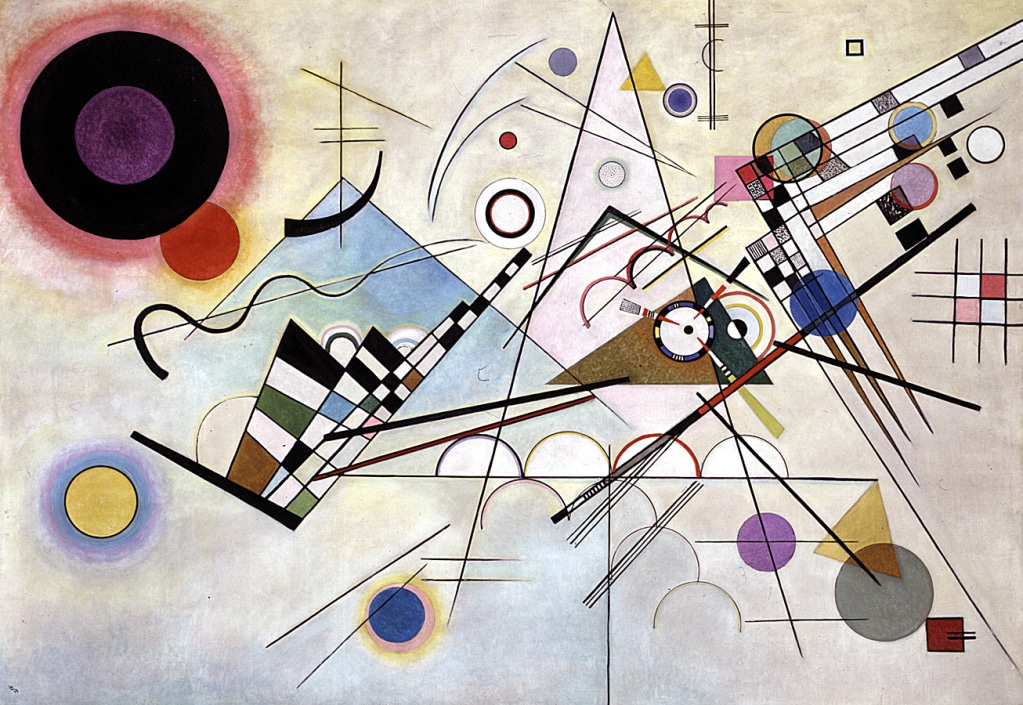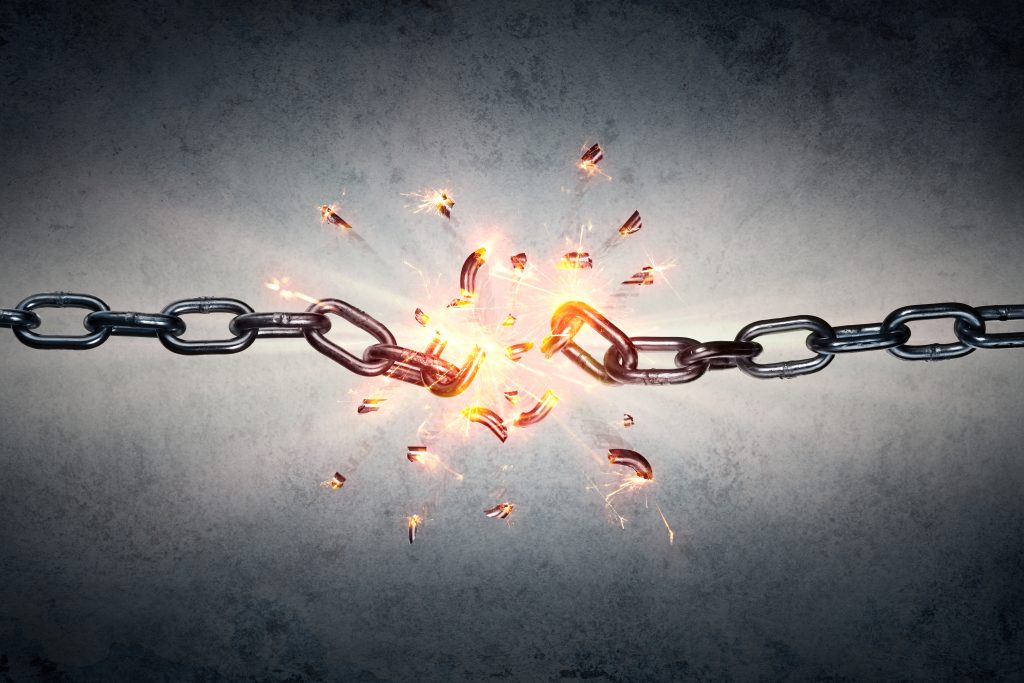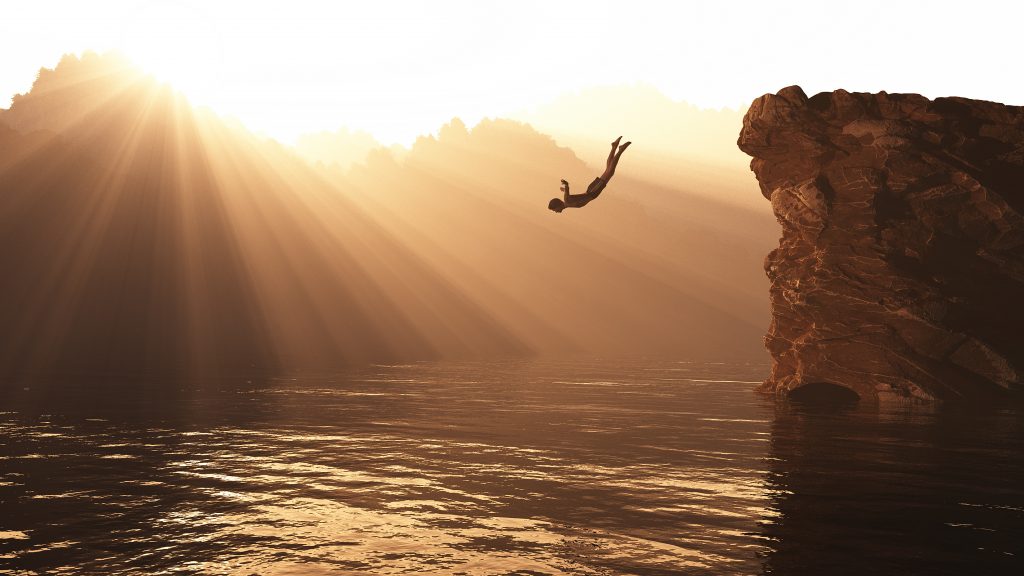Freedom is something that has always interested me.
I remember that when I was around 30, I felt stuck. I had been in a high-stress, long-hours job for a few years already and I foresaw a few more of those ahead of me. The content of that job was very interesting – intellectually speaking – and the job was well paid, so you could say I was lucky in the overall scheme of things.
But this “luck” obviously came with a few strings attached. Nothing major. Just having to give up on everything else in your life and selling your soul, no refunds allowed, to Satan himself.
Alright, that last part was a bit of an exaggeration. But you get the point.
At some point during this time, I started to feel a bit… how would I describe it? Conflicted is probably the right word. There was a growing inconsistency between the mundane pleasures that my body and mind – or rather my ego – were experiencing and the ocean of agony that my soul was silently sinking in.
And like that, out of nowhere, a calling for freedom started to emerge inside me.
Stage I: The calling for freedom
At the beginning this calling was something very abstract. It was a raw feeling, deprived of any concrete imagery. It could have been painted by a drunken Kandinsky in his teenage years. In other words, I didn´t have a clue about what the fuck it meant.

What the hell is this supposed to mean?
But then, something strange happened. I began to pay attention to specific things around me that somehow gave more colour and meaning to that abstract calling for freedom.
How did that happen?
Well, one possible explanation is this: Our brains are connected to our deepest desires and tend to filter the information around us that speaks to the potential satisfaction of those desires.
To be more precise, there are two levels of filtering at work here:
- In the first level, our beliefs have the wheel. We tend to listen to information – or interpret it in a way – that supports our beliefs and ignore information that doesn’t. The vast majority of us do this hundreds of times every day without even noticing. And the information that we decide to let in and the way we decide to interpret it gradually conform our worldview.
- In the second level, our desires take control. Our desires dictate, out of all that information that we have decided to let in, what we want to focus our attention on. Because you see, we tend to focus on something when we believe that by doing so we will satisfy some sort of desire. And the deeper the desire is, the deeper our focus tends to be.
In other words, when we become aware of some information out there that makes our beliefs and our desires intersect in perfect harmony, our attention fixes on it like a hawk.
So yes, in a nutshell, that was what happened to me in my thirties. Some specific things called my attention and started to transform my drunken Kandisky mental picture of freedom into something that started to make a little more sense.
When I think about what things were those, I remember that there were plenty of branches in that tree. But two of them had a particularly profound impact on my perspective. And both of them made their way through my brain filtering process, coincidentally or not, at approximately the same time.
The first one was the movie Into the Wild, dated 2007. The movie tells the true story of Christopher McCandless, a young man who abandoned the predictable path and decided to hike across North America into the Alaskan wilderness in the early 1990s to live in pure nature. It is based on the book written by Jon Krakauer and wrapped in a phenomenal soundtrack performed by Eddie Vedder.
It is difficult to explain in words what I felt when I watched it for the first time. Leaving any judgements about the quality of the movie aside, it struck a very special chord in me. It was exactly what my soul was silently screaming for: No more rules imposed from the outside world, no more bondage of expectations, no more living somebody else´s life. Just a simple and true existence doing what you really want to do – or searching for it – in deep connection with the overwhelming beauty of the world.
Now, you can imagine that this last sentence sounded pretty fucking great to an overworked, sleep-deprived and slave-of-other-people´s-expectations asshole like I was that time. The idea clicked in my head like breaking the last firewall of a high security network clicks in the head of a genius computer hacker. It was like… yeah, a revelation.
But then my Feeling Brain took the stage and yelled out a concern. He tends to show up uninvited and spoil the party, just because it makes him feel important. And the concern that he yelled out at me was this:
What happens with the financial side of things in that charming story you are telling yourself, moron? How are you going to sustain your lifestyle and your family´s? Hah?
Busted.
That was not a small matter. Somehow, my Kandinsky mental picture of freedom started to get foggy again.
But then, something strange happened. The universe conspired to move a few chess pieces around the board of my life and, one random day, It put the financial independence movement in front of my eyes when I was searching for something else on the Internet.
And, you guessed it, my brain filtering process did the rest. The hawk became laser-focused on the prey.
I read everything I could find about financial independence. Blogs, videos, courses, books. I was a financial independence super-machine. Inside my head, at least.

In the next few years, I practiced what I had learned about financial independence with the focus of a Zen master. My girlfriend thought that an alien had taken over my body and I had gone absolutely nuts. My friends couldn’t make any sense of my actions. And my mum thought that I had become some sort of misfit and I should be removed from the family will. But everything felt right to me and the process was, frankly, quite effortless.
I soon got to the point when I could call myself financially independent beyond any reasonable doubt. The Feeling Brain did his thing and projected some catastrophic scenarios into my head, in an attempt to pull me off that conclusion, but the poor guy had been dealt a bad hand this time. I had made it. I was free. I could do whatever the fuck I wanted.
And what did I decide to do with my newly acquired superpower?
Well, everything… and nothing.
Stage II: Optionality as the basis for Freedom
In my first years as a superhero, I defined freedom as optionality. It was all about keeping my options open and avoiding commitments, so I could do what I wanted when I wanted.
During my financial independence practice I had exercised my frugality muscles and learned to find pleasure in the simple things. My baseline expenses were low so I had massive leverage, in time and money, to enjoy life to the fullest.
That sounded like the ultimate life hack. How could my lifestyle get any better?
But, as obvious as it might seem, it wasn’t as simple as that. Because you see, optionality has its dark side too. Who would have thought?
When you can do whatever you want for a long enough period of time, no matter how creative, social and entrepreneurial you are with your activities, you reach a point where you start to feel that you are lacking direction. You start to feel that you are lacking impact. And the variety of choices you enjoy starts to lose its original appeal, because you don´t feel you are making any real progress on anything you are doing.
The reason this happens is that the mantra of optionality as the basis for freedom pushes you towards trying a lot of different things. But trying a lot of different things means, by definition, that you can only do each of them in a fairly superficial way. You don´t have time and dedication to go deep in any, to master any, to make a difference in any, because that would defeat the very nature of optionality: You would need to narrow your focus and give up on your ability to do other things.

And that sounded, on the surface, like a loss of freedom. Something that I was not prepared to accept because it was the value that I had decided the rest of my life would be built upon.
Funny enough, I was feeling conflicted again. How on earth was that possible? What kind of bullshit impostor superhero was I?
Well, it turns out that I was missing one small detail.
What I was really trying to do was to maximise happiness by enjoying every single moment to the fullest. And I thought that the best way to do that was by having constant variety in every step of the journey.
However, what I was really doing was trying to avoid any sort of pain. I was trying to avoid the problems and dissatisfaction that being committed to something inevitably brings to one´s life. I thought that by doing many things and renewing those things on a constant basis would allow me to get the highs and avoid the lows. I thought that by doing new activities, visiting new places, learning new things, hanging out with new people, trying new exercise routines, doing new diets and incorporating new sexual fantasies into my repertoire would keep the lows at bay and give me ongoing access to a permanent state of happiness.
But I ignored one universal truth: Pain is inevitable. You can´t escape pain. Pain has this awful habit of always coming back in different shapes and forms no matter what you do.
When I decided to choose optionality as the basis for freedom, what I was really doing was trying to avoid pain. What I was really doing was not accepting pain. What I was really doing was not embracing pain.
And that´s why I failed.
Stage III: Commitment as the basis for Freedom
When the optionality flag was flown in my ship, I sailed with a firm hand for a couple of years. I was convinced that the direction was right. But the ship started to slow down and it eventually stopped. The variety powerhouse had run out of steam.
Slowly, I started to understand the truth. As hard as it was, I had to accept that I had been looking at freedom through the wrong lens.
It was not about being able to do a lot of things. It was not about optionality. Optionality was fine, the same as good food is fine in an evening with friends. But there was something more important than optionality to be able to fully experience the kind of freedom that fills up your soul, the same as there is something more important than food to be able to fully experience a great evening with friends.
And then I came to the realisation. The realisation that changed my definition of freedom and the way I decided to live my life from that point onwards: It was all about choosing one core thing I truly believed in and devote myself to it.
It was about going deep on something, not superficial on everything.
It was about commitment, not optionality.

This idea might appear counterintuitive. And it is counterintuitive if you are stuck in the mainstream definition of freedom. But the mainstream definition of freedom is misleading. Not only misleading, it´s dangerous. It´s dangerous because it puts the focus outside ourselves, in all the things we can do and the opportunity cost of giving up on them. It´s dangerous because it is predicated on having access to an unlimited amount of experiences from the external world and being able to switch from one to another as soon as we feel the slightest sting of boredom or dissatisfaction.
But in this life dynamic, the boredom and dissatisfaction will always be one step away from us. If we stop and rest for a second, they catch up. Pain is always there, remember? Sometimes it only looks like it is not, but it is. It always is.
So maybe the right question is not so much about happiness as it is about pain.
Maybe the right question is: What kind of pain do I want?
I came to the conclusion that the kind of pain I want is the kind I would experience when I try to do something that is worthwhile to me. Something that resonates with my core values, that makes me feel good, that I can learn to do well and that allows me to grow.
And that kind of endeavor happens to require commitment. It happens to require focus. It happens to require giving up on other things that do not resonate as much with my values, that do not make me feel as good, that I can´t learn to do as well, or that don´t allow me to grow as much.
But then the main question comes up: Where do we find freedom in commitment? Isn´t freedom what I am ultimately looking for?
In commitment, freedom comes from the inside.
It comes from your ability to devote yourself to the chosen task in the way you see fit.
It comes from your ability to interact with the world and yourself in the way you think it´s best to satisfy your soul´s deepest desires.
It comes from your ability to define your purpose and the way you make it flow within yourself every day.
And it also comes from your ability to choose the type of pain that will make your life worth living, as well as how you decide to deal with it.
That, right there, is the ultimate form of freedom. The kind of freedom that will empower you to transcend your current self and become, in the way you decide one step at a time, someone better. Whatever you decide that the word better means to you, and irrespective of whatever the fuck the rest of the world thinks it should mean.
Just because you can. Just because you are free.
Pura vida,
Frank.

